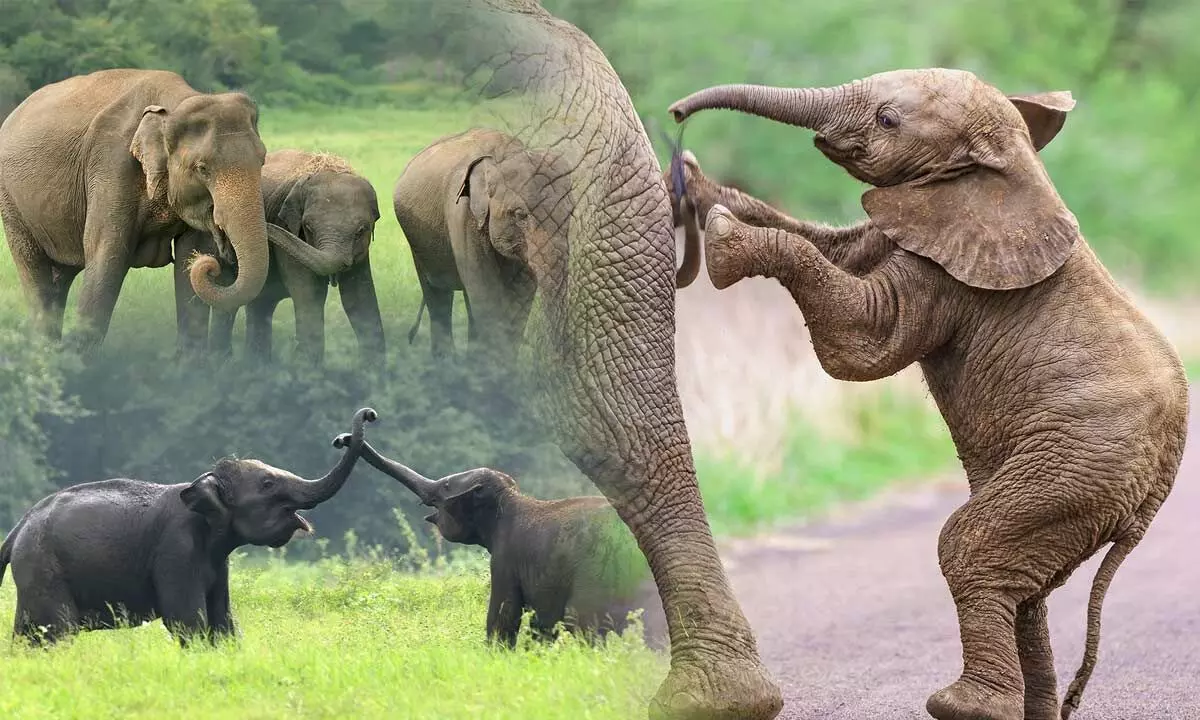World Elephant Day 2024: Theme, History, Importance, and Elephant Species Overview

World Elephant Day, celebrated annually on August 12, is an international event dedicated to raising awareness about the conservation and protection of elephants across the globe
World Elephant Day, celebrated annually on August 12, is an international event dedicated to raising awareness about the conservation and protection of elephants across the globe. This significant day highlights the critical issues elephants face, including habitat destruction, poaching, human-elephant conflicts, and the urgent need for enhanced conservation efforts. The ultimate aim of World Elephant Day is to promote a sustainable environment where elephants are not only protected but also cherished.
Theme for World Elephant Day 2024
The theme for World Elephant Day 2024 is “Personifying Prehistoric Beauty, Theological Relevance, and Environmental Importance.” This theme emphasizes the ancient significance of elephants, their cultural and spiritual importance, and their critical role in maintaining ecological balance.
History of World Elephant Day
World Elephant Day was first celebrated on August 12, 2012, thanks to the efforts of Patricia Sims from Canada and the Elephant Reintroduction Foundation of Thailand, a project initiated by HM Queen Sirikit of Thailand. Patricia Sims has continued to lead World Elephant Day since its inception.
Over the years, World Elephant Day has garnered support from over 100 organizations committed to elephant conservation. It has successfully reached millions of people worldwide, inspiring them to take action in support of elephants and their habitats.
Significance of World Elephant Day
Elephants play a crucial role in their ecosystems as both grazers and browsers. By consuming large amounts of vegetation, they help shape landscapes and promote the dispersal of seeds, which in turn supports plant growth and the natural regeneration of forests. For instance, in Asian landscapes, elephants often create gaps in dense vegetation, allowing sunlight to reach the ground and nourish young plants.
World Elephant Day serves as a powerful platform for organizations and individuals to come together and raise awareness about the challenges elephants face. Through this collective voice, governments, lawmakers, and citizens can collaborate to develop and implement conservation strategies that ensure the protection of elephants and their habitats for generations to come.
Overview of Elephant Species
Elephants are broadly classified into two main species: Asian elephants and African elephants. Both species face significant challenges due to increasing human population and industrialization, leading to habitat encroachment and a higher likelihood of human-elephant conflicts.
World Elephant Day has been instrumental in highlighting the urgent need for global efforts to protect these majestic creatures and their habitats. Through continued awareness and action, the hope is to secure a future where elephants can thrive in their natural environments.











